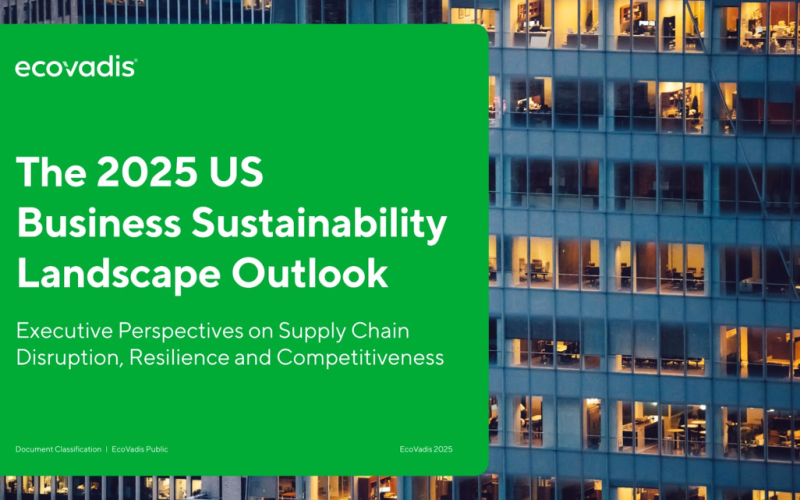A majority of U.S. companies have maintained or increased their investment in business sustainability efforts in 2025, even as public promotion of such initiatives declines, according to the latest U.S. Business Sustainability Landscape Outlook released by EcoVadis.
The report, based on a survey of 400 executives from U.S. firms with revenues exceeding $1 billion, indicates that 87% of companies have continued or expanded sustainability investments. However, a growing trend of “greenhushing”—reducing public disclosure of sustainability efforts—has emerged, with nearly one-third of executives reporting they are investing more but communicating less.
Only 7% of respondents admitted to cutting back sustainability efforts, and just 6% said it was not a priority, citing a focus on basic compliance. In contrast, 31% said they are investing more in sustainability while limiting public messaging, and 8% have stopped discussing sustainability commitments altogether despite staying on plan.
Executives view sustainability as a key component of business resilience and competitiveness. Sixty-five percent believe supply chain sustainability offers a competitive advantage, with benefits ranging from risk reduction and cost savings to customer retention and brand enhancement. Among finance leaders, 52% cited sustainability as a growth driver.
The potential consequences of reduced regulatory oversight also feature prominently. Nearly half (47%) of C-suite leaders warned that rolling back ESG regulations could increase supply chain disruptions. A further 35% expressed concern that such rollbacks would weaken ESG data quality, accountability, and outcomes. Fifty-nine percent anticipated a rise in unfair labour practices if ESG oversight diminishes.
Despite their continued commitment, many firms are struggling with compliance. Only 13% reported being on track to meet deadlines under key regulations, including the EU’s Corporate Sustainability Reporting Directive (CSRD) and Carbon Border Adjustment Mechanism (CBAM), California’s SB-253, and Canada’s Modern Slavery Act. Up to 19% have yet to begin collecting the required supply chain ESG data.
Technology is playing a growing role in bridging ESG data gaps. A third of executives admitted to submitting estimated or inaccurate ESG data, driven by compliance, marketing, or investor expectations. However, 89% plan to increase tech investments in the next year. Currently, 57% use ESG risk mapping tools, 49% have supplier engagement platforms, 34% use supply base mapping tools, and 32% rely on on-site audit tools.
“Even as the debate over business sustainability heats up, executives are focused on the reality – sustainability is what keeps supply chains running and customers on board,” said Pierre-François Thaler, co-founder and co-CEO of EcoVadis. “To stay ahead of risks and disruption, leading companies are prioritizing transparency and accountability by investing in tools that help them assess supplier performance, manage risk more proactively, and navigate evolving compliance demands.”
The report highlights five key trends: the persistence of sustainability investment amid greenhushing, recognition of sustainability as a competitive advantage, concern over ESG regulatory rollback, challenges with compliance, and increased investment in ESG-related technology.

















